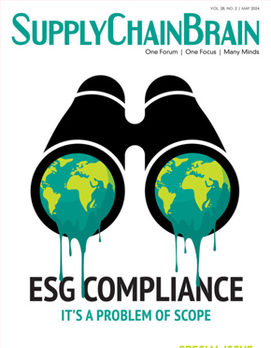
Food supply chains are long, complicated processes that get edibles from farms to the dinner table. Many individuals, companies and countries are involved in ensuring that a wide variety of food is available worldwide. With so many links in the chain, however, a lot of inventory and communications end up getting lost along the way — despite the implementation of modern technology and systems.
Blockchain is here to fix those communication problems. Acting as a record keeper for multiple industries, it can keep track of everything and make sure the system flows correctly at all times. And while mere record keeping doesn't seem like something that can totally change how the industry operates, blockchain ups the game.
Here are just a few ways it is changing the food supply chain.
Efficiency and automation. Efficiency can be considered the umbrella term for everything good that blockchain brings to the food supply chain. But it’s about more than just record keeping. A blockchain is made up of code that keeps track of every action involved in the process. The technology eliminates the need for manual transitions from one step to the next.
Smart contracts are complex if-then statements of code written into the blockchain itself. When certain conditions are met, the blockchain automatically moves the process on to the next task, resulting in less time wasted and less miscommunication between companies. This simple process of automation is sufficient to change the way food supply chains work.
Tracking products and information. A blockchain is made up of “blocks” of data, as the name suggests. Each consists of smaller ones that represent individual transactions. Each transaction has its own specific code, providing information on when and where an item was transferred. Essentially, a blockchain is a tracking system.
The tracking aspect of blockchain is how it's able to keep such precise records. Both items and information are being monitored, allowing for all parties involved to communicate clearly under one shared language and program.
An even better way to use this tracking information is to implement predictive analytics, so that a manufacturer can get a hint of future operational performance.
Much less waste. When dealing with the food industry, there's always going to be a certain amount of waste. However, with blockchain, there can be a lot less food loss, especially for unnecessary reasons. Blockchain can predict the freshness of a field harvest during processing, so that the inventory can go exactly where it needs to. In addition, this same technology can filter by supply and demand.
The tracking aspect of blockchain also becomes useful in reducing waste. Companies can find when and where the food was initially harvested, and what kind of conditions it was stored in. There have been instances of individuals making false claims about the freshness of their products, and blockchain seeks to end this problem.
Better food safety precautions. Waste can sometimes be a fact of life, but risks of harm from food products should always be avoidable. Blockchain is cracking down on false claims of quality, but it’s also going further to make sure that food that's less than fresh doesn't continue to be processed. The U.S. Food and Drug Administration (FDA) has ways of tracking food-safety measures across the country, and some of these records are made public.
Even at the end of the chain, blockchain doesn't stop working. The FDA can use it to see if restaurants aren't following safety procedures, by tracking food poisoning cases from hospital to hospital. From sensors in food storage facilities and beyond, everything can be kept monitored. This easily accessed information helps everyone prevent waste and support healthier food products.
Blockchains are already being implemented in food supply chains all over the world. The benefits are numerous, and the cons few. Even switching over to blockchain can be easy, if not exactly seamless at first. Blockchain has been proven to house multiple functionalities within the food supply-chain industry, making this futuristic record-keeping system almost necessary to the process.
The implementation of blockchain now will save companies time and money later. It’s a secure, easy and new way to keep track of vital data, one that will boost productivity and reduce unnecessary waste. With the 2020s finally here, we can look forward to new technology and be as adaptable to change as possible. That's what makes progress possible.
Jenna Tsui is a technology blogger at The Byte Beat.



.jpg?height=100&t=1715228265&width=150)



